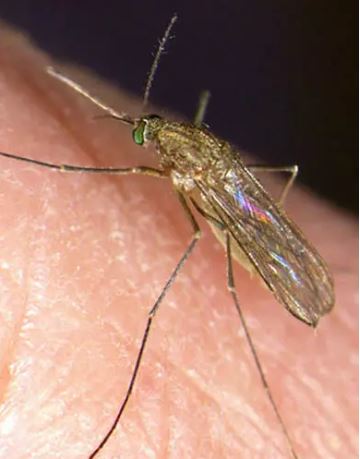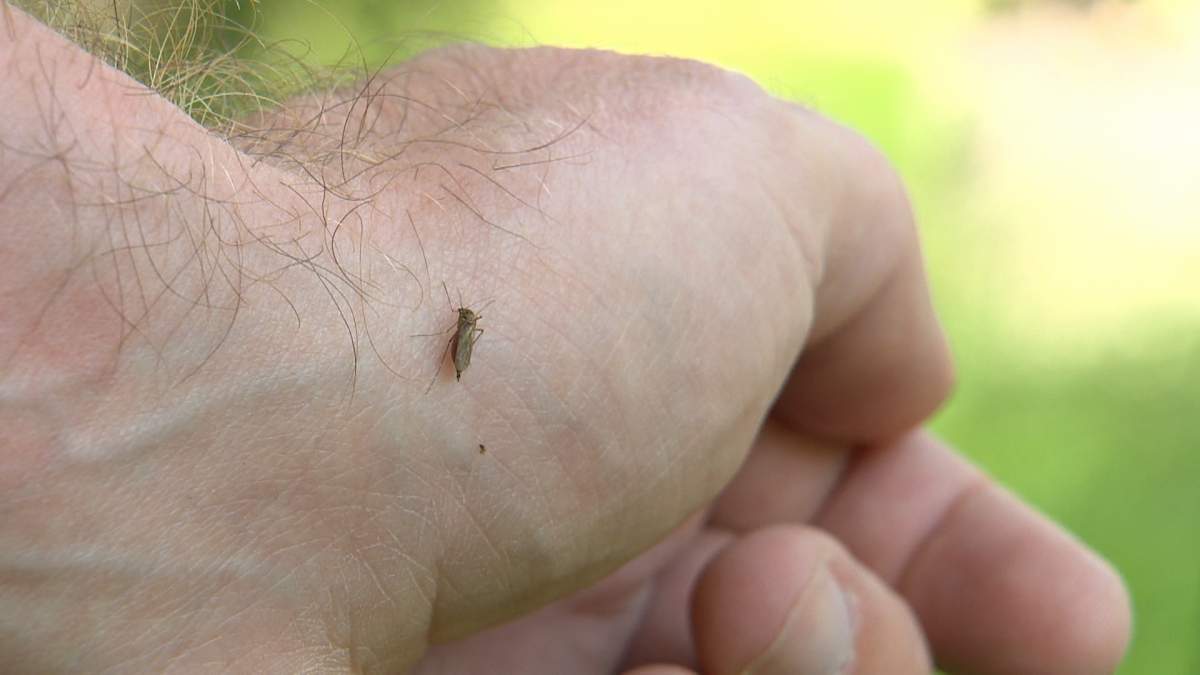“I hate mosquitoes,” said Hayato Nagashima as he and a friend prepared to take a walk in Fish Creek Park on Tuesday.
It’s a familiar refrain heard from many Calgarians following several weeks of unseasonably soggy weather.
“I can’t even go into our backyard without getting eaten alive,” said Tracy Elliott-Suliak. “We tried to go for a walk in the bird sanctuary the other day and I got chased right out. It’s just, it’s bad.”
John Sohigian, an assistant professor in the faculty of veterinary medicine at the University of Calgary, confirms there are a lot more of the pests buzzing around the city lately — likely because of all the rain that fell during the month of July.
In a normal year, Calgary would see about 66.2 mm of precipitation in July, but this year the city experienced its third wettest July on record with 167.5 mm of rain falling on the city — making in the third wettest July on record.
With close to three times the normal amount of rainfall falling in July this year, there are lots of possible breeding areas for mosquitoes in Calgary.
Global News
Aside from being extremely annoying, some mosquitoes can also carry nasty viruses.
“So one of the things that we are doing in my lab now is we’re testing mosquitoes for West Nile virus, as well as for a group of viruses called California Cerro group viruses — so these are two of the viruses that we’re somewhat concerned about being in Alberta,” added Sohigian.
In most cases people who become infected with the West Nile virus won’t even notice it — but in rare cases, West Nile can lead to severe illnesses that affects the brain or spinal cord.
The symptoms include fever, headache, feeling very tired, body aches, a rash and swollen glands.
More serious symptoms may include severe headache, confusion, tremors or convulsions, muscle weakness or paralysis, and in the most severe cases, coma, brain damage and death.
This year, Sohigian and his fellow researchers are also tracking a different species of mosquito that’s relatively new to Alberta called the culex pipiens — or northern house mosquito — and is known in other parts of the world to carry the West Nile virus.
“We haven’t found any yet. It’s still early in the year for that though because normally we see West Nile virus later in the year here,” said Sohigian.
“As mosquito populations pick up and then they start biting more birds and other animals that would have that virus, that’s when the mosquitoes pick it up.”
The northern house mosquito is also more commonly found in rain barrels and other suitable habitat that people have in their backyard.

Culex pipiens, also known as the northern house mosquito, is a common carrier of the West Nile virus.
University of Calgary
Calgarians are also being asked to help track the different species of mosquitoes by taking part in a citizen science project at the Inglewood Bird Sanctuary or Ralph Klein Park.
People who spot mosquitoes or get bitten while visiting the two parks are being asked to pick up a mosquito sampling kit, drop the mosquito in a small vial, fill out a little information form and drop it all in a collection box.
Sohigan said anyone who is worried about mosquitoes should also take a look around their backyard.
“If you have things like water barrels that are uncovered, you could put screens over them or that kind of thing, or if you have flower pots that hold water at the base, you could try dumping that water periodically. Changing (the water in) bird baths or dog bowls or put a screen over top of water barrels to keep the mosquitoes out. That kind of thing will help keep mosquitoes out of our backyards,” said Sohigan.
People who are worried about being bitten by mosquitoes are being advised to reduce their risk by looking around their backyard and get rid of any standing water.
Global News
And the best way to protect yourself when you are outdoors — in places where you think mosquitoes might be around — is to use bug spray.
“Just kind of take some simple precautions to protect yourself and I don’t think Calgarians have too much to worry about if they do those steps,” added Sohigan
Still, said Madison Shidler, as she and her daughter covered themselves with bug spray as they headed out for walk, the mosquitoes still seem to find a place to bite.
“We spray down every single day and they’ll get like that little sliver of skin between your sock and your pant leg, or some have actually gone through the clothing before. It’s kind of been rough lately,” added Shidler. “They’ve been attacking pretty hard.”



